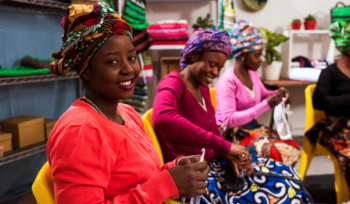- 02/12/2019
- Posted by: Julien Garcier
- Categories: Articles, Kenya, SagaRetail
Nairobi-based Copia has raised USD26 million in a Series-B equity round led by UK-based impact investment fund LGT Lightstone. Impact investing refers to investments that are made with the aim of generating a measurable social, or environmental benefit, in addition to a financial return. According to Copia, it intends to use this investment to expand in Kenya and beyond.
Founded in 2013 by Americans Tracey Turner and Jonathan Lewis, Copia utilises a network of more than 5,000 local agents located along fixed routes to deliver goods to consumers in central and western Kenya, many of whom lack access to modern retail channels.
Consumers place and pay for their orders with these agents, who send them to Copia using a smartphone app. The agents then take delivery of these orders and hold them for consumers to collect. To date, it has fulfilled more than three million orders. Selling everything from FMCG to construction materials and farm supplies, it has a more workaday product mix than most internet retailers in Africa.
“Just like mobile phones leapfrogged landlines and solar power leapfrogged the grid, Copia is leapfrogging retail. LGT Lightstone believes Copia’s m-commerce model is the way to reach a huge untapped market that others cannot serve,” commented LGT Lightstone partner Shakir Merali.
If you want to read more, click here
The Sagaci Research View: Copia’s retail model and product mix are very different to those of Jumia and argueably better adapted to local market conditions – at least outside of the largest cities. Delivering to agents along fixed routes (Nakuru-Kericho and Kisumu-Bungoma, for example) minimises delivery costs and makes it unnecessary to locate individual homes (a logistical headache for the likes of Jumia in the absense of proper addressing systems).
Moreover, Copia’s use of printed catalogues, an obsolete sales channel in most of the rest of the world, is a canny move in an environment where internet access remains patchy and smartphones far from ubiquitious.



